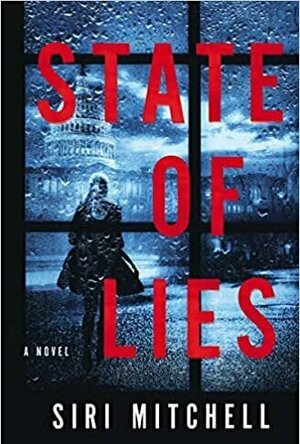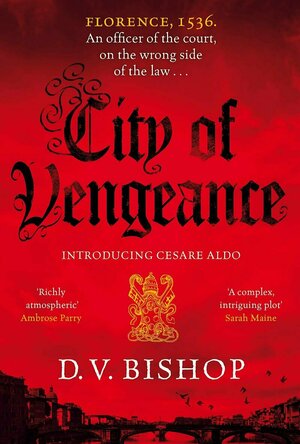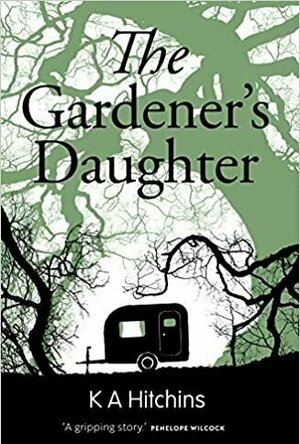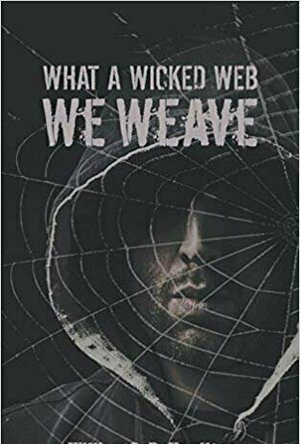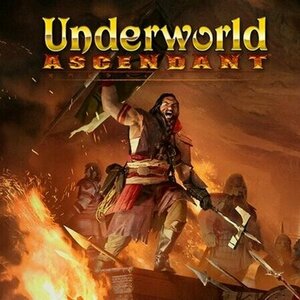
Underworld Ascendant
Video Game Watch
Underworld Ascendant is the next-generation follow-up to Ultima Underworld, the critically acclaimed...
action role-playing

David Bowie: The Last Five Years
TV Show Watch
There was nothing predictable about David Bowie. Everything was designed to intrigue, to challenge,...
documentary music
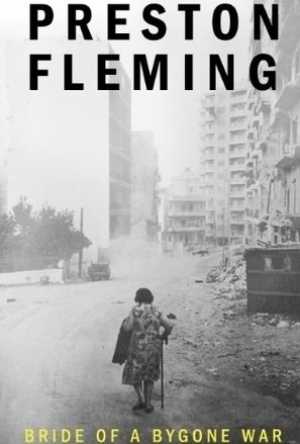
Bride of a Bygone War (Beirut Trilogy, #2)
Book
The second book in the Beirut Trilogy, BRIDE OF A BYGONE WAR is set in the spring of 1981, following...
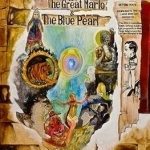
Adventures of the Great Marlo and the Blue Pearl
Book
After the success of his first book 'Now It Begins', Gary Markwick has ventured into the world of...

Lamentation
Book
Matthew Shardlake is back in Lamentation, from the number one bestselling author C. J. Sansom....
TravelersWife4Life (31 KP) rated State of Lies in Books
Feb 24, 2021
In the first chapter, I got introduced to some of the intrigue, relationships, and mystery that Siri Mitchell weaves with great skill. It made me think in what-if scenarios (i.e. what if I was in Georgie’s or Sean's shoes?). As I picked it up to finish the story, the book continued to unfold much like that first chapter. I COULD NOT PUT IT DOWN. It was such a thrilling ride to figure out how all the clues fit together and seeing the ending. I mean Wow. This book left me giddy smiling to the point my husband asked me what was wrong. I, of course, had to explain the plot and told him he really would only understand if he read the book.
The whole book flowed at a believable rate, not rushing, but letting you get a feel for the thoughts and emotions of the characters. After reading the first chapter I was hooked. The rest of the book kept that same momentum for me, and I highly recommend reading this book. I give this book a 5 out of 5 Stars (If I could give more I would), for the great attention-grabbing first chapter, how Siri Mitchell weaved in a military/political/mystery/romance with such easy, and for the strength of the characters in not giving up in the face of overwhelming odds. Thanks for the wonderful read.
I received this book from Celebration Lit in return for my honest feedback. The thoughts and opinions expressed within are my own.
ClareR (6074 KP) rated City of Vengeance in Books
Mar 30, 2021
Cesare Aldo is an officer of the criminal court and a former soldier, and when we first meet him, he is riding home to Florence from Bologna with the Jewish moneylender he’s protecting. This is where we learn just how good Also is at this part of his job. His charge reaches his home safely, despite an encounter with bandits.
Thinking he has finished his job well, Also leaves the moneylender at his home and thinks nothing more of it - until the moneylender is murdered.
Also is tasked with finding the murderer within four days, which seems impossible. Especially when you factor in all the trouble that Aldo manages to get himself in to!
Meanwhile another constable of the criminal court, Strocchi, is investigating the death of a young man. The only problem, is that he was murdered whilst wearing a dress, and homosexuality is illegal. Finding his murderer isn’t high on the courts list of priorities - in fact, there are those who work there who believe that he has got exactly what he deserves.
There’s loads of mystery and intrigue in this book, as well as heaps of historical detail. It’s fast-paced and totally unputdownable. It shows the seedier, more difficult side of life at this time, especially when we get a look in to La Stinche - a notorious prison hellhole.
Both Also and Strocchi are characters that I’m looking forward to finding out more about - especially Aldo. There’s a lot more to him than we see in this, what I hope is, the first of a series (I’m totally guessing here - but it’s not a terrible idea!).
Many thanks to Pan Macmillan for providing me with an e-copy of this book to read and review through NetGalley.
BookInspector (124 KP) rated The Gardener's Daughter in Books
Sep 24, 2020
The main lead in this novel is Ava, a nineteen-year-old girl, who finds out that she is adopted. Filled with anger and wish to find out who her real dad is, she runs away from home, getting herself in a lot more trouble than she could dream. This book offers a very wide variety of different characters, who bring intrigue and personality to the whole book. I really liked this selection of characters in this novel, and I think they all played their roles really well. However, Ava really annoyed me sometimes, with her silly and very childish decisions and actions. My favourite would be Theo, I loved his kind nature and heart, and he represented real father figure to me.
I really liked the plot of this novel, it was very well crafted, bringing a compelling and interesting setting and plenty of intrigues. It was really interesting to read all those bits and pieces of camp’s life and what can be hiding behind closed doors. The twists and turns were smartly placed and left me pleasantly surprised.
I think Hitchins is a very talented author, she has a great eye for detail and very creative writing style. I found the chapters quite long for my liking, but overall, the book didn’t drag for me because I was quite keen to find out, what will happen next. I really enjoyed the ending of this novel, and if there will be a continuation, I will be definitely waiting for it. 🙂 So, to conclude, this is a very amusing book, filled with very well developed and engrossing characters and intriguing plot, and I truly believe that Hitchins is incredibly good at what she does. So please give this book a try and hopefully you will enjoy it as much as I did. 🙂
Becs (244 KP) rated What a Wicked Web We Weave in Books
Oct 2, 2019
Type: Stand-alone
Audience/ Reading Level: 18+
Interests: Murder, Fraud, Law Enforcement, Sexual Assault, Family.
Point of View: Honestly, I’m not sure because the views changed all the time.
Promise: What a Wicked Web We Weave is a novel full of mystery, intrigue, murder, revenge, fraud and betrayal amongst many other things. It has several twists and turns as you get enthralled into each chapter and it will leave the reader in suspense and at the edge of their seat, right up to the end.
Insights: I really was hoping to love this little book. But I just couldn’t get over how much the author blew over certain controversial topics and how he wrote this novel. The story was there, there was background on not only the characters but also the story. But I won’t be reading this book again because it wasn’t as enjoyable as I thought it would be. There was also a massive amount of grammatical errors that took away from the surrounding story. Finally, the plot was not the greatest. Two out of five stars.
Can we talk about how the author thought writing a sexual assault scene and then blowing it off like it meant nothing was okay? Also, can we talk about the fact that the victims brother and his lover thought it was alright to go back to the assailant’s room and assualt him in return? I do not take lightly to sexual assualt and this just really put me off on the rest of the story.
Favorite Quotes: “Tony Lodge eat your heart out.”
“‘It’s going to be a long night,’ Tony thoight. ‘Come to Tony you asshole.'”
What will you gain?: An interesting story that is not the greatest read.
Aesthetics: I was intrigued by the synopsis when I first requested this. But I’m majorly disappointed with the way the author set up this novel.
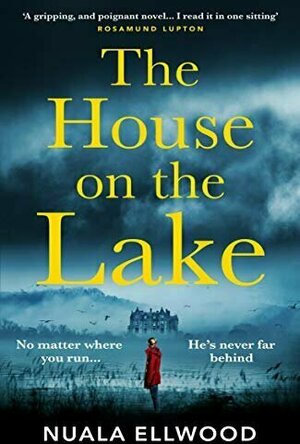
The House on the Lake
Book
No matter how far you run . . . He's never far behind 'Gripping, poignant' Rosamund Lupton ...
